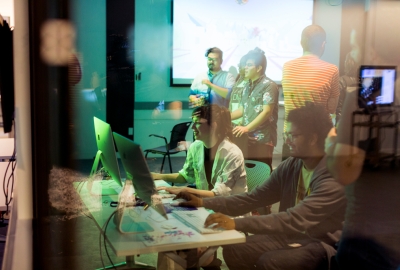We examine food from historical and transnational perspectives, including agricultural origins, famines, co-evolution of world cuisines and civilizations, global exchange and spread of food and technologies following the Columbian invasion, issues of hunger, and the effects of the emergent global economy on food, production, diets, foodways and health. Students gain a greater understanding of how food production and consumption influences a myriad of factors, including politics, economics, prevailing notions of health, climate, geography, technology, and culture.
Course #
FOOD-GE 2012
Credits
3
Department
Nutrition and Food Studies


